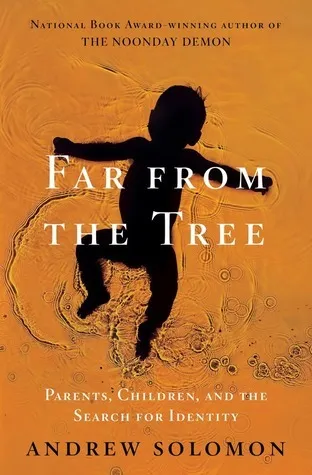
The Spanish philosopher Miguel de Unamuno wrote, “It is not usually our ideas that make us optimists or pessimists, but it is our optimism or pessimism that makes our ideas.”
Though many of us take pride in how different we are from our parents, we are endlessly sad at how different our children are from us.
Having exceptional children exaggerates parental tendencies; those who would be bad parents become awful parents, but those who would be good parents often become extraordinary.
Recent academic work suggests that people who know their condition to be irreversible are happier than those who believe their condition may be ameliorated. In such cases, ironically, hope may be the cornerstone of misery.
In the gnostic gospel of St. Thomas, Jesus says, “If you bring forth what is within you, what is within you will save you. If you do not bring forth what is within you, what is within you will destroy you.”
Fixing is the illness model; acceptance is the identity model; which way any family goes reflects their assumptions and resources.
Many conditions are both illness and identity, but we can see one only when we obscure the other. Identity politics refutes the idea of illness, while medicine shortchanges identity. Both are diminished by this narrowness.
Deaf people in the hearing world are always going to be at a disadvantage. So the question is whether people prefer to be marginal in a mainstream world, or mainstream in a marginal world, and many people quite understandably prefer the latter.
We often use illness to disparage a way of being, and identity to validate that same way of being.
You can love someone but not accept him; you can accept someone but not love him. I wrongly felt the flaws in my parents’ acceptance as deficits in their love. Now, I think their primary experience was of having a child who spoke a language they’d never thought of studying.
Difference unites us. While each of these experiences can isolate those who are affected, together they compose an aggregate of millions whose struggles connect them profoundly. The exceptional is ubiquitous; to be entirely typical is the rare and lonely state.
An increasing number of deaf people maintain they would not choose to be hearing. To them, cure—deafness as pathology—is anathema; accommodation—deafness as disability—is more palatable; and celebration—Deafness as culture—trumps all.
The rhetoric of antielitism that has fueled American politics and its culture wars over the past generation reflects a bias toward extraordinary people who can pass for ordinary.
The population at large does not like threats to binaries; binaries drive homophobia and racism and xenophobia, the constant impulse to define an us and a them.
The problem wasn’t that she wanted to control my life—although she did, like most parents, genuinely believe that her way of being happy was the best way of being happy. The problem was that she wanted to control her life, and it was her life as the mother of a homosexual that she wished to alter. Unfortunately, there was no way for her to fix her problem without involving me.
I take the anti-Tolstoyan view that the unhappy families who reject their variant children have much in common, while the happy ones who strive to accept them are happy in a multitude of ways.